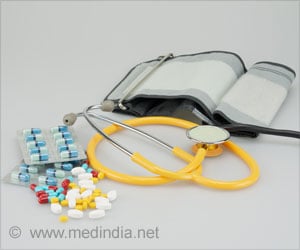Oral HRT increases the risk of venous thrombosis or blood clots significantly when compared to other forms of HRT especially among postmenopausal women.

TOP INSIGHT
Women using HRT in the form of oral tablets are at high risk of developing blood clots when compared to non-oral forms.
Read More..
Hormone replacement therapy (HRT) is used to relieve symptoms such as hot flushes and night sweats and reduce the risk of certain health conditions in women going through the menopause.
There are a range of different HRT treatments available, depending on the symptoms experienced. Some women require a drug based only on the oestrogen hormone, while others may need a combination of oestrogen and another hormone, progesterone. HRT can also be taken in different forms - by tablets, patches, gels or creams.
Although all treatments are effective in managing menopausal symptoms, an increased risk of venous thromboembolism (blood clots) is a rare, but serious, known side effect. A recently issued guideline from the National Institute for Health and Care Excellence (NICE) stressed that research results from studies trying to estimate the risk of developing blood clots as a result of HRT are still not clear, and that findings to date were not a reliable basis for decision-making by doctors or patients.
The Nottingham study aimed to provide clarity on the subject by identifying and comparing venous thromboembolism risks for all forms of HRT treatment used in the UK.
The researchers compared the treatment prescription records of all women who developed blood clots with those for a group of women who did not. To ensure that the results properly reflected the effects of the different therapies, the study took into account other relevant health conditions and patient characteristics, which might have affected the risk of developing blood clots.
For tablet treatments, the risk was found to differ for two types of oestrogens. Both for single and combined hormone treatments, the risk of blood clots was 15 per cent higher for the treatments containing oestrogen manufactured from horse urine than for the synthetic oestradiol.
However, women who were using HRT in patch, gel or cream form were not found to be at risk, even at higher doses.
The results of the study could also be helpful to agencies such as NICE in the development of new best-practice guidelines.
Dr Yana Vinogradova, of the University's School of Medicine, undertook the research. The team also included Professors Julia Hippisley-Cox and Carol Coupland. Dr Vinogradova says: "Our study has shown that, for oral treatments, different tablets are associated with different risks of developing blood clots, depending on the active components. It has also confirmed that risks of thrombosis for patients using HRT treatments other than tablets (patches or gels) is very low. This lower risk has been known for more than ten years and - although patches or gels may not be acceptable in some circumstances - it was surprising to find that only 20 per cent of HRT prescriptions to date have been for non-oral treatments. Our findings are particularly important information for women, who require HRT treatment and are already at increased risk of developing blood clots."
Source-Eurekalert
 MEDINDIA
MEDINDIA

 Email
Email










